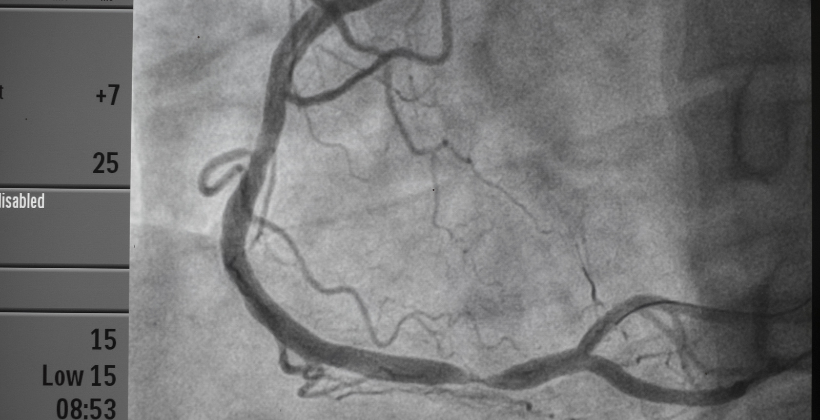When Should You Get a CT Coronary Angiography? Signs & Symptoms to Know - Best Hospital in Ghatkopar, Mumbai | Zynova Shalby Hospital
- Home
- When Should You Get a CT Coronary Angiography? Signs & Symptoms to Know

- admin
- 0 Comments
Coronary artery disease (CAD) is one of the leading causes of death worldwide. It often develops silently, without clear symptoms in its early stages. That’s why early diagnosis is crucial for effective treatment and prevention. One of the most advanced diagnostic tools available today for detecting heart disease is CT coronary angiography. But how do you know when you need this test? And what should you look out for? In this blog, we’ll explore the signs and symptoms that indicate you should consider getting a CT coronary angiogram, and how a cardiologist in Ghatkopar at Zynova Hospital can help guide you through the process.
What is CT Coronary Angiography?
CT coronary angiography is a non-invasive imaging test used to visualize the coronary arteries in your heart. It helps doctors detect any blockages or abnormalities in the arteries that could lead to heart attacks or other cardiovascular problems. Unlike traditional angiography, which involves threading a catheter into your arteries, CT angiograms use advanced X-ray technology and contrast dye to capture detailed images of your blood vessels.
When people refer to an angiogram or angiogram test, they may be talking about a traditional procedure that involves inserting a catheter into the heart arteries to inject dye and take images. CT coronary angiograms are different as they allow doctors to view the arteries from the outside with minimal discomfort.
Why and When Should You Consider a CT Coronary Angiography?
Certain conditions and symptoms may lead your cardiologist in Ghatkopar at Zynova Hospital to recommend a CT coronary angiogram. Here are some key factors:
- Chest Pain or Discomfort: If you experience unexplained chest pain, it may be a sign of a blockage or narrowing in your heart arteries. A CT angiogram can help identify the exact cause.
- Shortness of Breath: Difficulty breathing, especially during exertion, may indicate heart problems, including blocked arteries. If you’ve been experiencing this symptom, a CT coronary angiogram may be recommended to assess your heart’s health.
- Fatigue: Chronic fatigue or unusual tiredness, particularly if combined with other symptoms, could signal a problem with your heart. A CT coronary angiogram can provide clarity on whether heart disease is the underlying cause.
- Family History of Heart Disease: If you have a family history of heart disease or high cholesterol, your cardiologist in Ghatkopar at Zynova Hospital might suggest a coronary angiography test even without obvious symptoms. Early detection is key to managing these risk factors.
High Blood Pressure or Diabetes: People with high blood pressure or diabetes are at an increased risk for heart disease. Coronary angiography, including a CT coronary angiogram, is a valuable tool for identifying blockages in the heart’s arteries before symptoms appear.
Common Symptoms That May Indicate the Need for Coronary Angiography
Several signs and symptoms may prompt your doctor at Zynova Hospital to suggest an angiogram test. These include:
- Chest Pain (Angina): A feeling of pressure or tightness in the chest is a classic symptom of heart disease and often leads to angiography tests.
- Pain Radiating to Other Areas: Pain that spreads to the arm, jaw, neck, or back may also indicate a problem with your heart arteries.
Dizziness or Lightheadedness: If you experience frequent dizziness or fainting spells, it could be a sign of reduced blood flow to the heart, warranting further investigation with a coronary angiography test.
The Angiogram Procedure: What to Expect
The angiogram procedure involves the injection of a contrast dye into the coronary arteries, allowing doctors to view the blood flow and detect blockages. In the case of a CT coronary angiogram, you’ll be asked to lie on a table while a special CT scanner captures detailed images of your heart and blood vessels.
The procedure is relatively quick and painless. However, there may be mild side effects from the contrast dye, such as a warm sensation or a metallic taste in your mouth. It’s essential to follow your cardiologist’s instructions before the test, including fasting for several hours beforehand.
How a Cardiologist in Ghatkopar at Zynova Hospital Can Help
A cardiologist in Ghatkopar at Zynova Hospital plays a crucial role in diagnosing and managing heart disease. If you’re experiencing any of the symptoms mentioned earlier, it’s essential to consult with a cardiologist who can recommend the appropriate tests, such as a CT coronary angiogram. Once the results are in, your doctor will work with you to create a treatment plan that may include lifestyle changes, medications, or even surgery, depending on the severity of the condition.
Conclusion
A CT coronary angiogram is a valuable tool in detecting coronary artery disease, especially for individuals with risk factors or symptoms such as chest pain, shortness of breath, and fatigue. Early diagnosis through this imaging test can make a significant difference in the prevention and treatment of heart disease. If you’re experiencing any concerning symptoms, consult with a cardiologist in Ghatkopar at Zynova Hospital to determine whether a CT coronary angiogram is right for you.
At Zynova Hospital, our team of experienced cardiologists is ready to provide you with the care and attention you need. Book an appointment today to learn more about heart health and the diagnostic tests available to you.


Leave a Comment